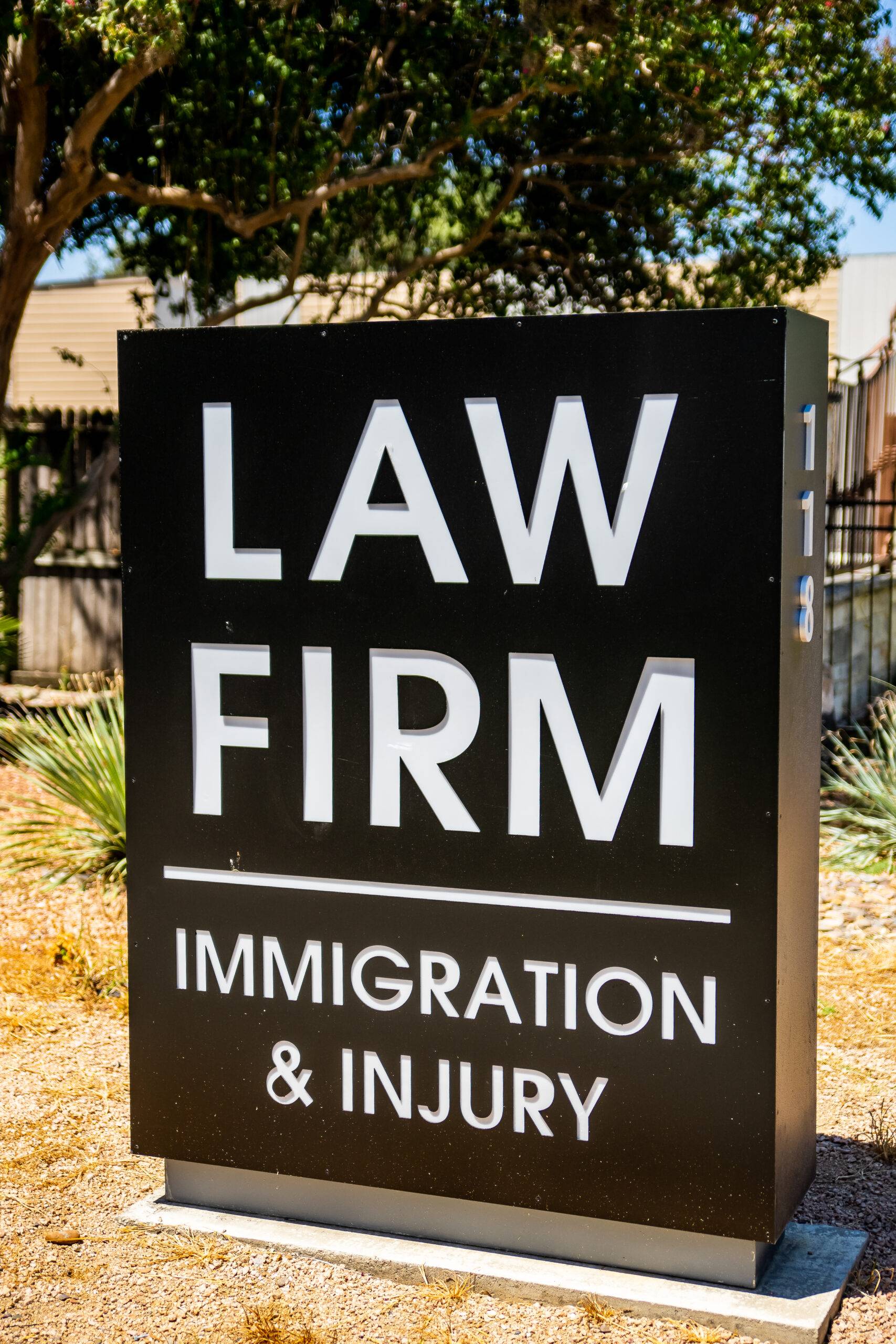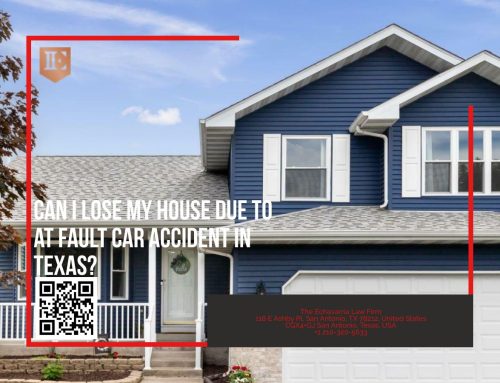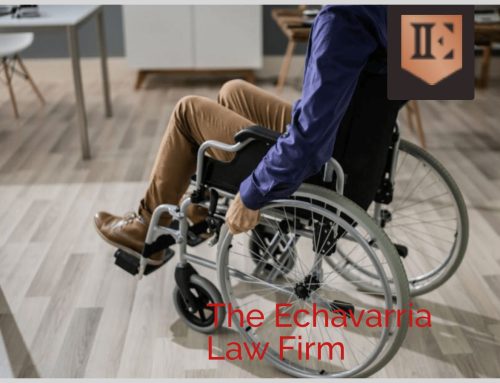Personal injury cases are a common occurrence, and understanding the ins and outs of these legal matters is crucial for anyone who may find themselves in such a situation. Whether it’s a car accident, slip and fall, medical malpractice, or workplace incident, knowing what to do and what damages can be claimed is essential.
In this article, we will explore the most common types of personal injury cases, the damages that can be claimed, how these damages are calculated, the statute of limitations for filing a claim, and how to maximize your damages in a personal injury case. So, whether you’re seeking information as a precautionary measure or currently dealing with a personal injury case, this comprehensive guide has got you covered.
What Is a Personal Injury Case?
A personal injury case refers to a legal dispute that arises when an accident victim seeks compensation for the injuries and losses suffered due to the negligence of an at-fault party.
These cases cover a broad spectrum of incidents, including automobile accidents, slip and fall incidents, medical malpractice, and product liability claims. In such situations, a personal injury attorney plays a crucial role in representing the injured party. The attorney helps the victim navigate the complexities of the legal system, gather evidence, and negotiate with insurance companies.
If the case proceeds to trial, the attorney must present a strong argument to prove the negligence of the at-fault party and demonstrate the extent of the plaintiff’s injuries and losses. The goal of the case is to secure compensatory damages, which aim to reimburse the injured party for medical expenses, lost wages, and pain and suffering.
What Are the Most Common Types of Personal Injury Cases?
Personal injury cases encompass a wide range of incidents, with the most common types including car accidents, slip and fall accidents, medical malpractice, product liability claims, and workplace accidents.
Car accidents often result from negligent or reckless driving, and the legal process involves proving fault, assessing damages, and negotiating settlements.
Slip and fall accidents typically occur on someone else’s property due to hazardous conditions, requiring a thorough investigation to establish liability.
Medical malpractice claims arise from healthcare provider negligence, leading to complex legal proceedings and the need for expert testimony.
Product liability cases involve defective products causing harm, necessitating thorough product testing and liability investigation.
Workplace accidents involve workers’ compensation claims and potential third-party liability lawsuits.
Car Accidents
Car accidents are a leading cause of personal injury claims, often necessitating the involvement of a personal injury attorney to negotiate with insurance companies and seek compensation for economic and non-economic losses.
Common causes of car accidents include distracted driving, speeding, drunk driving, and adverse weather conditions. These incidents can result in severe physical injuries, property damage, and emotional trauma. The legal proceedings following a car accident involve investigating the circumstances, determining liability, and assessing the extent of the damages. Seeking compensation for medical expenses, lost wages, and pain and suffering requires a thorough understanding of the legal intricacies, which is where a personal injury attorney plays a crucial role.
Insurance companies often aim to minimize payouts, making it necessary for accident victims to have legal representation to ensure fair treatment. Economic damages, such as medical costs and vehicle repairs, along with non-economic damages, like pain and suffering, can be complex to quantify and negotiate. A skilled personal injury attorney can navigate these complexities to advocate for the best possible outcome for their clients.
Slip and Fall Accidents
Slip and fall accidents often result in property loss and injuries, leading to the pursuit of compensatory damages through legal representation by experienced attorneys.
These accidents can occur in various settings, including public places, workplaces, and private properties due to hazards such as wet floors, uneven surfaces, or inadequate lighting. When such incidents happen, individuals may suffer injuries like fractures, sprains, or head trauma, as well as damage to personal belongings. In cases where property loss and bodily harm occur due to negligence or unsafe conditions on someone else’s premises, the injured parties may have grounds for seeking compensation.
Medical Malpractice
Medical malpractice cases revolve around the negligence of healthcare professionals, often resulting in the need for future medical expenses and the pursuit of a personal injury claim due to the harm caused by such negligence.
When a patient becomes a victim of medical malpractice, it can have profound implications. The resulting injuries may necessitate extensive medical care and treatments, leading to a substantial financial impact on the individual and their family. Future medical expenses, including rehabilitation, long-term care, and additional medical procedures, can place a significant burden on the affected party.
Plus the financial strain, victims of medical malpractice often seek legal recourse to pursue a personal injury claim. This involves establishing that the healthcare professional’s negligence directly caused the harm suffered by the patient. Through personal injury claims, individuals aim to receive compensation for the damages incurred, including medical costs, lost wages, and emotional suffering.
Product Liability
Product liability cases arise from injuries caused by defective products, leading to claims for compensatory damages and the involvement of attorneys to navigate the legal process and recover losses, including legal fees.
When a consumer is harmed by a defective product, they may seek compensatory damages as a form of monetary compensation for their injuries or losses. This can include reimbursement for medical expenses, lost wages, pain and suffering, and other related costs.
Legal representation plays a crucial role in these cases, as skilled attorneys can help the injured party gather evidence, negotiate with the product manufacturer, and articulate the extent of their damages to obtain a fair settlement.
The pursuit of compensatory damages in product liability cases often involves complex legal procedures, and as a result, legal fees can mount up. Consequently, the expertise of attorneys and legal professionals is vital in maximizing the recovery of losses for the injured party.
Workplace Accidents
Workplace accidents often lead to lost income and the need for legal representation by a personal injury lawyer to recover compensatory and recoverable damages resulting from injuries sustained on the job.
For individuals injured in workplace accidents, the financial impact can be devastating due to lost income resulting from time off work for recovery. Without the assistance of a knowledgeable personal injury lawyer, navigating through the process of seeking recoverable damages can be overwhelming. These legal professionals play a crucial role in advocating for injured workers and ensuring they receive fair compensation for their injuries, medical expenses, and lost wages. Understanding the legal aspects of workplace injury claims is essential to protect individuals’ rights and financial stability.
What Damages Can Be Claimed in a Personal Injury Case?
Damages that can be claimed in a personal injury case encompass compensatory elements such as medical expenses and pain and suffering, as well as punitive damages in certain circumstances.
In personal injury cases, compensatory damages aim to reimburse the injured party for the actual costs incurred as a result of the injury, including medical treatment, therapy, and loss of income.
Pain and suffering damages, on the other hand, are intended to compensate for the physical and emotional distress caused by the injury, taking into account the impact on the individual’s quality of life.
Punitive damages, though less common, may be awarded in cases where the defendant’s conduct is deemed especially reckless or intentional, serving as a deterrent and aiming to punish the wrongdoer. These various forms of damages work together to provide fair compensation and, in some cases, to penalize egregious behavior.
Medical Expenses
Medical expenses form a significant part of compensatory damages, encompassing the costs incurred for medical treatment and the projection of future medical expenses, often supported by receipts as evidence in legal proceedings.
These expenses play a crucial role in determining the economic impact of an injury or illness on an individual’s life and financial well-being. Receipts substantiate the actual costs incurred, aiding in the calculation of damages realistically. In legal cases, such expenses are classified as economic damages, representing measurable financial losses directly resulting from the injury. The projection of future medical expenses is essential in understanding the long-term financial repercussions of the injury, thereby influencing the compensation sought.
Lost Wages
Lost wages constitute a key aspect of compensatory damages in personal injury cases, representing the income loss due to injuries and the potential need for rehabilitation, leading to monetary losses for the victim.
In essence, when an individual is unable to work due to injuries sustained from an accident, it directly impacts their ability to earn a living, resulting in financial hardship. The income loss can have wide-reaching implications, extending beyond the immediate medical bills to affect the victim’s ability to sustain their livelihood and provide for their family. The potential need for rehabilitation further compounds the financial burden, as it entails additional expenses that the victim may struggle to cover.
Pain and Suffering
Pain and suffering represent non-monetary losses in personal injury claims, encompassing the emotional distress and non-economic impact caused by the injuries sustained, forming a critical component of the victim’s case.
When individuals experience pain and suffering as a result of an accident or injury, they endure intangible hardships that go beyond financial compensation. These non-economic damages can include the trauma of the incident, the physical and emotional anguish endured, and the profound impact on the individual’s quality of life.
The legal significance of emotional distress cannot be overstated in personal injury claims. Courts recognize the deep-rooted implications of emotional suffering and consider its impact when determining appropriate compensation for the victim’s anguish and loss of enjoyment of life.
Emotional Distress
Emotional distress, often addressed with the support of a personal injury attorney, encompasses the mental anguish and the potential impact on relationships, leading to claims for loss of consortium and wrongful death damages in certain cases.
Dealing with emotional distress can involve seeking legal recourse to account for the emotional and psychological impact of an accident or injury. An experienced personal injury attorney can provide crucial guidance and advocacy for individuals and families navigating these complex situations.
In cases involving severe emotional trauma, there may also be a need to pursue wrongful death damages for the surviving family members. The concept of loss of consortium refers to the deprivation of the benefits of a family relationship due to a negligent action or wrongful death.
Loss of Consortium
Loss of consortium pertains to the impact on relationships and the potential for claims within a personal injury case, often involving compensatory damages and expenses related to funeral arrangements in severe instances.
When a person is injured due to the negligence of another party, it can have far-reaching consequences on their closest relationships. Loss of consortium recognizes the detrimental effects on the marital relationship, including the loss of companionship, affection, and support. In personal injury claims, compensatory damages may be sought not only for the physical and emotional suffering of the injured party but also for the impact on their spouse or partner. This can encompass both the past and future damages, taking into account the long-term repercussions of the injury.
In severe cases, such as wrongful death incidents, funeral expenses and the financial implications of the deceased’s absence can also be factored into the compensation sought. These financial aspects may account for the loss of income, benefits, and other contributions that the deceased would have provided to the family. It is important to assess these expenses comprehensively, as they form a crucial part of the overall damages claimed in a personal injury case.
Punitive Damages
Punitive damages may be sought in a personal injury lawsuit in exceptional cases, involving the consideration of a court and judge to determine the imposition of additional compensation beyond the compensatory damages.
In cases where the defendant’s conduct is deemed particularly reprehensible or malicious, the court may allow the plaintiff to seek punitive damages. This additional compensation is intended to punish the defendant and deter similar behavior in the future. The judge plays a crucial role in assessing whether punitive damages are warranted, considering factors such as the severity of the defendant’s actions and the need for deterrence in similar cases.
The legal process for seeking punitive damages involves presenting evidence of the defendant’s misconduct to support the claim. If the court approves the request, punitive damages can significantly impact the total compensation awarded in a personal injury lawsuit.
How Are Damages Calculated in a Personal Injury Case?
The calculation of damages in a personal injury case involves meticulous assessment and may necessitate the expertise of an attorney to navigate the complexities of civil action and legal proceedings.
When determining damages in a personal injury case, various factors come into play, such as medical expenses, lost wages, pain and suffering, and future rehabilitation costs. Attorneys play a crucial role in gathering evidence, including medical records, expert testimonies, and financial documentation to present a compelling case for the full extent of the damages.
The legal aspects of civil action entail adherence to statutes of limitations, and the presentation of damages in a persuasive manner, demonstrating the impact of the injury on the plaintiff’s life. Quantifying damages can be intricate, as it often requires understanding the long-term effects of the injury and projecting the associated costs.
What Is the Statute of Limitations for Filing a Personal Injury Claim?
The statute of limitations for filing a personal injury claim varies by jurisdiction, and in Colorado, the law imposes specific time constraints, underscoring the importance of timely action and the involvement of experienced attorneys.
In Colorado, the statute of limitations for personal injury claims typically gives individuals two years from the date of the injury to file a lawsuit. This means that if a claim is not filed within this timeframe, it may be barred by the court. It is crucial to understand and adhere to these limitations as they play a significant role in the outcome of a case.
Regarding Colorado law, an attorney well-versed in personal injury cases is vital in navigating the complexities. Attorneys can assist in gathering evidence, understanding the legal nuances, and ensuring that all deadlines are met. Their expertise can make a significant difference in the success of a claim.
How Can I Maximize My Damages in a Personal Injury Case?
Maximizing damages in a personal injury case involves strategic negotiation and the expertise of a personal injury attorney to ensure comprehensive compensation and effective interaction with insurance companies.
Personal injury attorneys play a critical role in advocating for their clients, gathering evidence, and building strong cases to demonstrate the full extent of the physical, emotional, and financial impact of the injury. They work diligently to compile medical records, review police reports, and consult with experts to accurately assess the damages incurred.
When negotiating with insurance companies, personal injury attorneys employ various tactics to strengthen their clients’ claims, considering factors such as long-term medical costs, lost wages, pain and suffering, and potential impact on future earning capacity. It is essential to establish a clear understanding of the damages suffered and effectively convey this to the insurance company to secure maximum compensation.
Frequently Asked Questions
What damages can I claim in a personal injury case?
You can claim various types of damages in a personal injury case, including medical expenses, lost wages, pain and suffering, and property damage.
What are medical expenses?
Medical expenses are the costs you have incurred for your injuries, such as hospital bills, doctor’s visits, medications, therapy, and other related expenses.
Can I claim lost wages in a personal injury case?
Yes, you can claim lost wages if your injuries have caused you to miss work or have resulted in a decrease in your earning capacity.
What is pain and suffering?
Pain and suffering refers to the physical and emotional distress caused by the injuries sustained in a personal injury case. This can include physical pain, mental anguish, and loss of enjoyment of life.
Can I claim property damage in a personal injury case?
Yes, if your property was damaged in the accident that caused your injuries, you can claim the cost of repairing or replacing the damaged property.
Are there any time limits for claiming damages in a personal injury case?
Yes, there are time limits, known as statutes of limitations, for filing a personal injury claim. These vary by state and type of case, so it is important to consult with an attorney as soon as possible after an accident.






